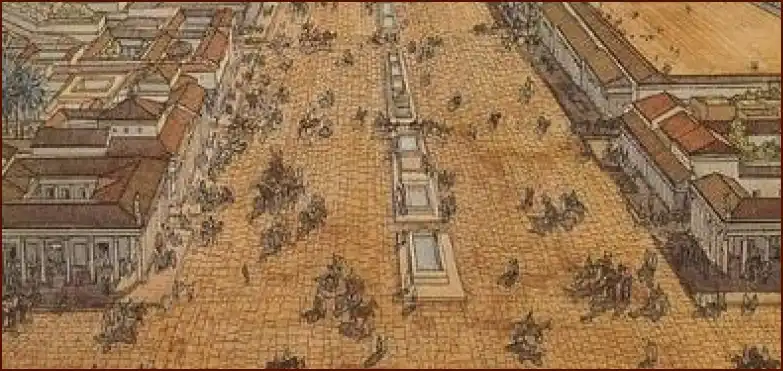The world of Hellenistic poetry was a competitive, scholarly environment where poets were deeply engaged with the literary past and with each other. This led to a creative dynamic defined by literary rivalry and allusion. Poets were not just creating new works in a vacuum; they were participating in a conversation with the great authors of the past, especially Homer, and with their own contemporaries. This was a world of *imitatio* (imitation) and *aemulatio* (rivalry).
Table of Contents
Understanding this dynamic is key to appreciating the complexity of Hellenistic literature. A poem was often a site of debate, a place where a poet could showcase their learning, critique a rival’s style, or offer a clever reinterpretation of a classic text. This competitive spirit spurred innovation and led to the development of a highly self-conscious and sophisticated poetic style.
📚 Engaging with the Past
Hellenistic poets, working in the shadow of the great Library of Alexandria, had a comprehensive knowledge of the entire tradition of Greek literature. They saw themselves as the heirs to this tradition, but they were also determined not to be crushed by its weight. Their relationship with the past was twofold:
- Imitation (*Imitatio*): They deeply respected and studied the classical masters, borrowing themes, language, and structures from their works.
- Rivalry (*Aemulatio*): They also sought to surpass or correct their predecessors, showing how their own refined, modern sensibility could improve upon the old models.
For example, Apollonius of Rhodes wrote his epic, the *Argonautica*, in the meter of Homer, but he filled it with un-Homeric elements, like a psychologically complex hero and a deep focus on the emotion of love. This was a way of honoring the epic tradition while simultaneously updating it for a new age.
⚔️ The Quarrel of the Ancients and Moderns
The most famous literary rivalry of the period was the intellectual quarrel between Callimachus and his opponents, whom he called the “Telchines.” This was essentially a debate about the proper form and function of poetry in the Hellenistic age. At the heart of the dispute was the epic genre.
Callimachus’s rivals, likely including Apollonius, seem to have believed that poets should continue to write long, traditional epic poems in the style of Homer. Callimachus vehemently disagreed. He argued that the time for such grand, continuous narratives was over. Instead, he championed a “modern” aesthetic that valued brevity, polish, and erudition. This debate played out in their poetry. Callimachus’s famous prologue to the *Aetia* is a poetic manifesto that attacks his critics and defends his choice to write short, refined poems. This use of poetry itself as a tool for literary criticism and debate was a hallmark of the competitive and scholarly nature of the Alexandrian literary scene.
More Topics
- How Philosophy Influenced Hellenistic Writing
- How to Understand the Hellenistic Book Roll
- How to Read Hellenistic Didactic Poetry
- How to Appreciate Hellenistic Women Poets
- How Scholarship Became Literature in the Hellenistic Era
- How Royal Patronage Shaped Hellenistic Literature
- How to Experience Hellenistic Mime and Popular Entertainment

